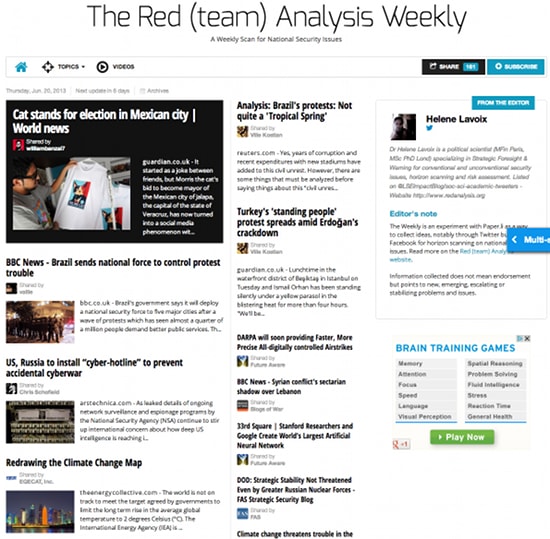What could a cat standing for elections in Mexico, clearly a prank, have to do with international relations, politics and national security? Why choose it as feature when so many other possible signals could have been highlighted such as new high tech capabilities and weapons, the evolution of the war in Syria and its impact in Lebanon, the region and global international politics, the new cyber-hotline between the U.S. and Russia, moves in Central Asia and the Caucasus or the never-ending questions on the crisis and Europe, without forgetting, of course the dramatic issue of climate change and its always nearer impact? The answer is in the symbolism, as underlined in The Guardian article: this cat is about political disenchantment, which goes hand in hand with loss of legitimacy, not only of a specific government, regime, or state, but of a whole system. It is a powerful symbol for the protests that flare in one country after another, now in Brazil after Turkey, then recede, then start again, in the same country or elsewhere. It is a sign that we are facing globally very deep changes – progressively revealed through all the other signals – and that societies are aware of those challenges and not quite satisfied with the way they are handled, or can be handled by the current system. It most probably indicates, in our disorganized collective efforts to face those challenges, more changes and more crises to come, until we find satisfying answers.
Click on the image below to read on Paper.Li


